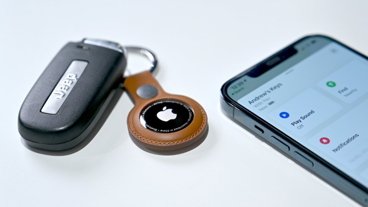Apple's App Store sees first month sales of $30 million
Users of Apple's new App Store have downloaded more than 60 million programs, generating a total of about $30 million in sales since the service launched one month ago, according to Apple chief executive Steve Jobs.
"This thing's going to crest a half a billion, soon," he said. "Who knows, maybe it will be a $1 billion marketplace at some point in time. I've never seen anything like this in my career for software."
Still, Apple isn't looking at the App Store as a big money maker, but rather a tool to further differentiate its iPhone from the broader array of mobile phones on the market. As such, it keeps only 30 percent of App Store revenues to cover costs associated with the service, turning the remaining 70 percent over to the software makers themselves.
As such, developers' share of the first month revenues was about $21 million, of which the top 10 developers earned roughly $9 million, Jobs said.
Video game house Sega Corp. was among the biggest earners, having sold 300,000 copies of its $9.99 Super Monkeyball game in just 20 days, fueling revenues of nearly $3 million. Meanwhile, a free drug encyclopedia offered by Epocrates Inc. was downloaded by more than 125,000 people, including 25,000 doctors.
In speaking to the Journal Jobs also confirmed that his firm's iPhone software contains a backdoor that theoretically would allow the company to remotely deactivate software that had already been purchased and downloaded to users' iPhones.
Jobs said the capability exists only to protect users in case Apple inadvertently allowed a malicious program — such as one that stole users' personal data — to be distributed over the App Store.
"Hopefully we never have to pull that lever, but we would be irresponsible not to have a lever like that to pull," he said.
 Sam Oliver
Sam Oliver










 Andrew Orr
Andrew Orr
 Sponsored Content
Sponsored Content
 Malcolm Owen
Malcolm Owen

 William Gallagher
William Gallagher

 Mike Wuerthele
Mike Wuerthele
 Christine McKee
Christine McKee







